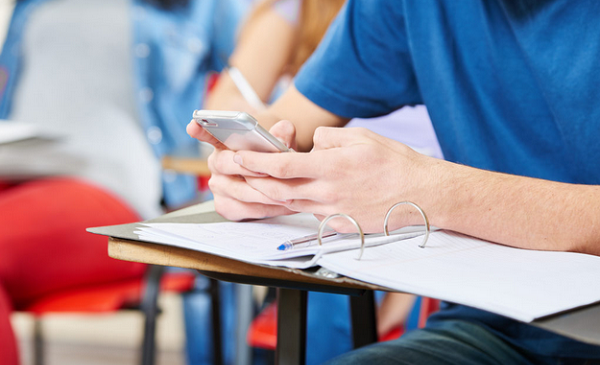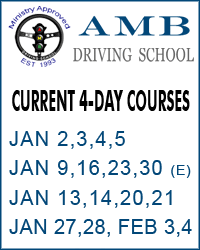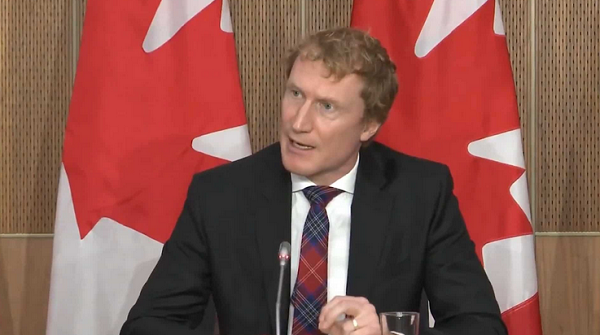Educators suggested restrictions on cellphones in schools rather than ban
This week, the largest school board in Canada launched a process to answer a question that is very much on the minds of parents, governments and researchers around the world: What should they do about cellphones in the classroom?
On Wednesday, a Toronto District School Board committee voted to create a policy on the use of mobile devices that will likely restrict their use, although an outright ban on them in schools is unlikely, says Rachel Chernos Lin, the trustee who brought forward the motion.
“It’s time for us to evaluate and re-evaluate how we’re approaching cellphone use in schools,” she said. “We have to do something that’s in the best interest of our staff and our students and their opportunities for learning. What we have now isn’t working.”
There is mounting evidence of cellphones’ detrimental effects on learning. A UNESCO report from last year cited research that has found it can take students up to 20 minutes to refocus after they’ve been distracted by their smartphones. Removing smartphones from some schools was found to improve learning outcomes. But there is no firm consensus among academics or parents about what role, if any, smartphones should play in the classroom.
Nearly one in four countries have enacted full or partial cellphone bans, according to UNESCO, the United Nations’ educational and cultural arm. Quebec instituted a ban on the devices in elementary and secondary schools as of January, saying they are a distraction but allowing their use for educational purposes, a policy similar to Ontario’s.
In 2019, Ontario mandated that cellphones only be used in class for educational, health and medical purposes, as well as to support special educational needs, including students with mental health needs. Otherwise, personal devices are only to be used during lunch or recess, according to the policy.
Smartphones can support learning in some contexts, “but not when it is overused or inappropriately used,” the UNESCO report said.
That is why the report urges a nuanced approach, not bans, says Prachi Srivastava, an associate professor at Western University who specializes in education and global development.
“By definition, a ban is not a nuanced approach. And so then the question comes, well, then how do we actually address the very real concerns around smartphones? The very real concerns around technology? And I think what ministries of education need to do in Canada, but also globally, is really think about that in a way that is much more specific,” she says.
David Chorney, a professor in the faculty of education at the University of Alberta, says bans are ill-advised.
“A more reasonable approach is restrictions within the school, allowing the teachers and administrators to use their judgment – teachers especially in their own classrooms – as to what they think is reasonable,” he says.
Digital devices can be powerful learning tools, but students’ smartphones have too many applications that are not used for educational purposes leading to distraction, says Sachin Maharaj, an assistant professor of educational leadership, policy and program evaluation at the University of Ottawa.
“A lot of educators and policy-makers are deciding the negative effects that these are having on kids’ attention and learning, as well as the social climate in schools and [kids’] emotional well being. When you add up all of these things, it may just make sense to not have them present during the school day,” he says.
But educators hoping to implement restrictions or bans may meet with opposition from parents, he says. “Parents are actually a really powerful reason that have worked against these restrictions,” he says. “Parents are the ones sending their kids to schools with their phones, and want the convenience of being able to reach them throughout the day.”
Charline Grant, the co-founder of Parents of Black Children, a Toronto-based advocacy group, says taking phones away in schools would be a problem, especially for racialized students.
“As a parent of Black children, I know having a cellphone and having the ability to record your treatment and the anti-Black racism that some of our kids are experiencing, and the abuse, whether it’s physical, verbal, or psychological has been important,” she says.
Bans would also interfere with students’ and parents’ ability to communicate with each other about after-school responsibilities or other issues, Ms. Grant says.
“Being able to connect with your child throughout the day is important,” she says.
Jacob Nosliw, a father of three in Toronto, says cellphones are too much of a distraction at school. “Kids should not have phones while they’re in a class,” he says. ”If there were schools that did not have laptops or cellphones and a strict policy on it, I would desperately try to get my kid into those schools.”
Creating and implementing a cellphone policy at the TDSB, one that may include blocking social media on all devices provided by schools, will likely take anywhere from six months to a year, Ms. Chernos Lin says.
In the meantime, there will be consultations with parents, teachers and other stakeholders, as well as a review of what is and is not working in other jurisdictions.
“This is not something that will happen overnight. But I also think it’s in the best interest of students and their success and their learning for us to take our time to craft a really solid, clear, intelligent policy that will set them up for success,” she says.
This article was reported by The Globe and Mail
















